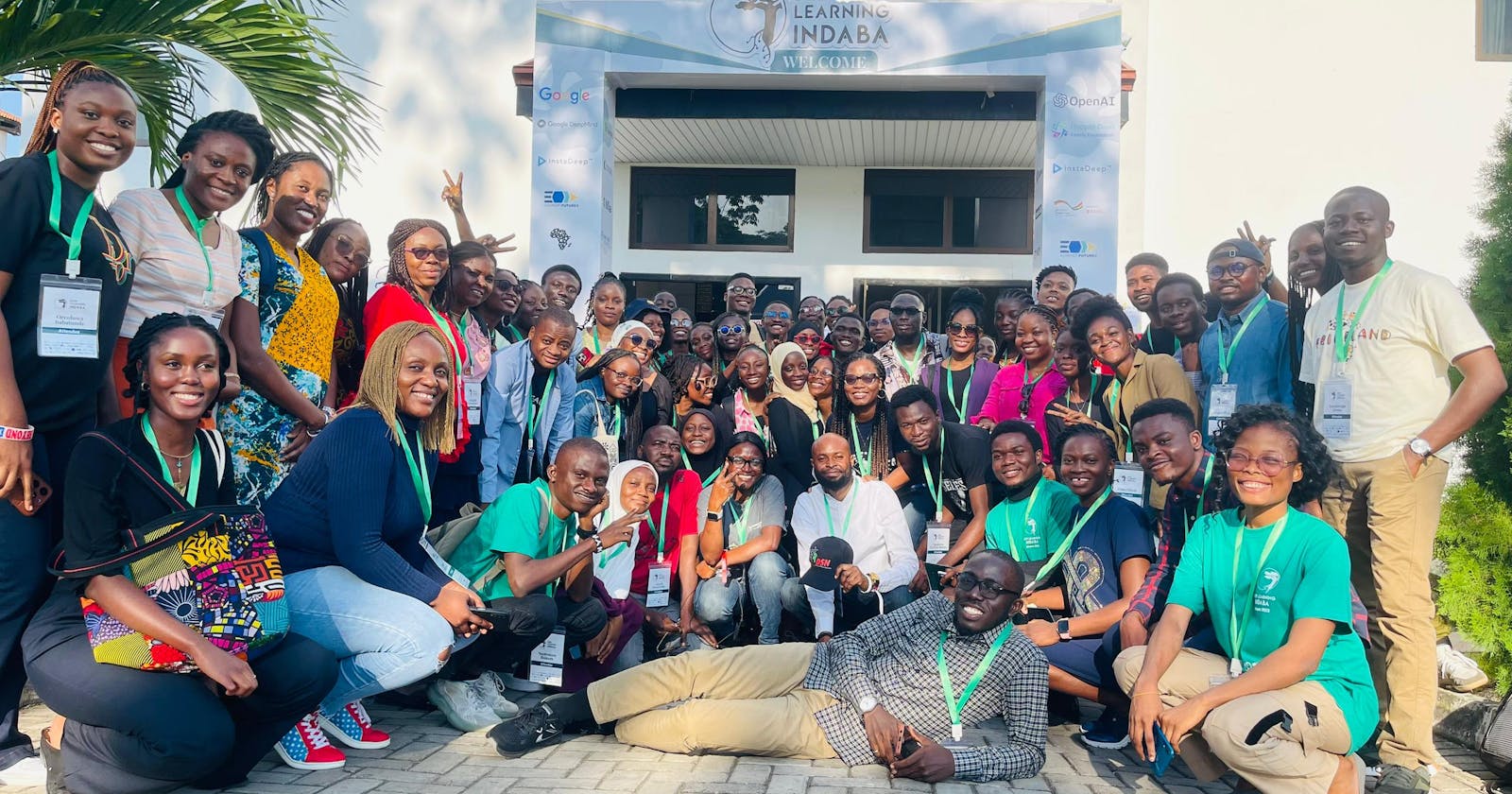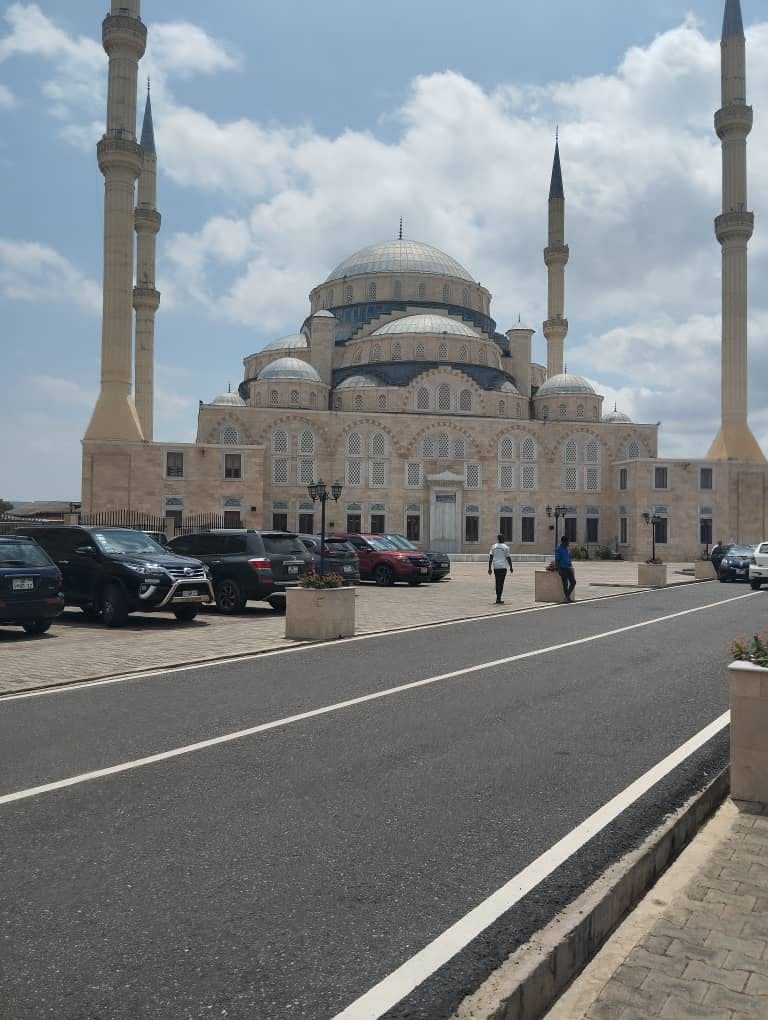Sometimes, it seems God gazes upon us and conveys, "My beloved, this is just the beginning for you." Securing funding to attend Deep Learning Indaba 2023 in Ghana has been a pivotal moment this year and has marked a significant redirection in my BioAI career.
In this blog post, I'll share my personal experience and lessons from the conference. Each person's experience at this event is unique.
🚀Day 0 - Learning the Language of Life
I began my Indaba experience with the Machine Learning in Biology workshop led by experts from Instadeep and Google Deepmind. This hands-on session revealed how computers can interpret the language of proteins. The workshop demonstrated how techniques like LLM and Embedding can turn protein sequences into numerical data. You can explore the workshop's notebook here for more insights and exercises.
To effectively use machine learning with protein sequences and chemical canonical smiles, you should be familiar with how large language models (LLMs) work.
At the start, Kevin Murphy highlighted the main aspects of Machine Learning: Predictions, Decisions, Analysis, and Synthesis. He showed how ML is like a crystal ball for predicting the future. Plus, it can simplify our daily choices and reveal unseen patterns.
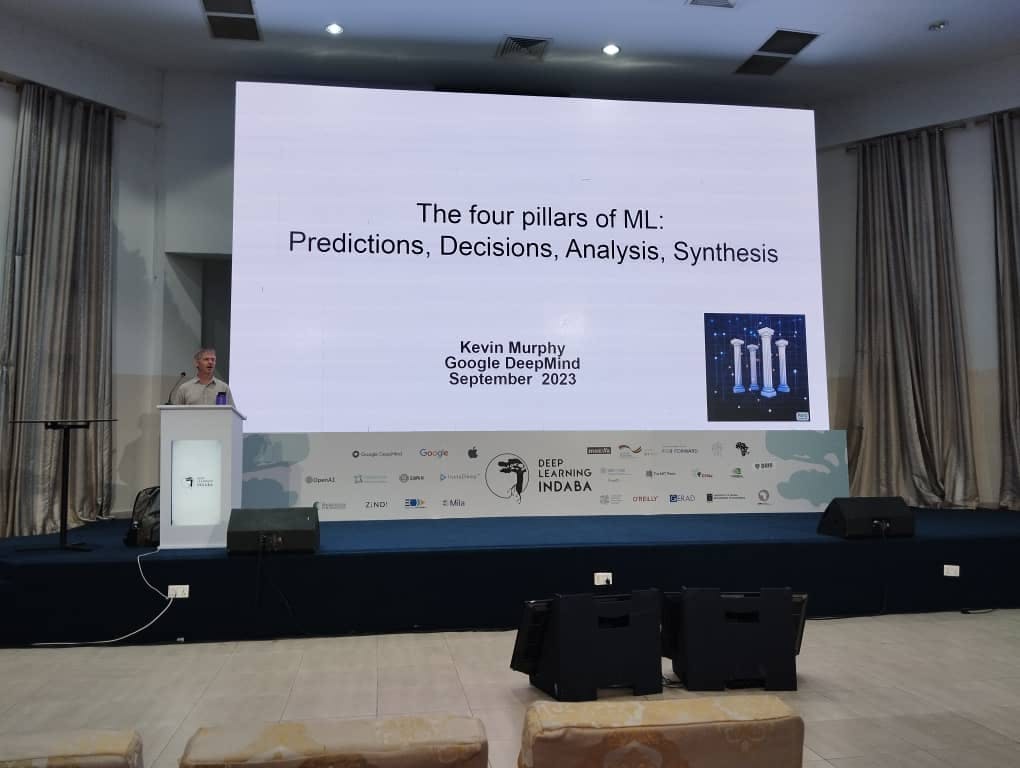
🚀Day 1 - Human Centric AI
Today, Ayokor Korsah gave a keynote speech about the importance of project-based learning for African universities developing intelligent systems. I also learned about Bayesian Inference from Kira Dusterwald, which had a lot of math 😑.
I went to a workshop on Responsible AI, where I learned how to make AI models fair. Responsible AI covers Fairness, Privacy, Consent, and avoiding Discrimination. While AI models can naturally have biases, it's our job to make them fair and correct.
I enjoyed Timnit Gebru's talk today. She discussed the overlooked work behind AI advancements and emphasized the need for humans to work together despite our big dreams.
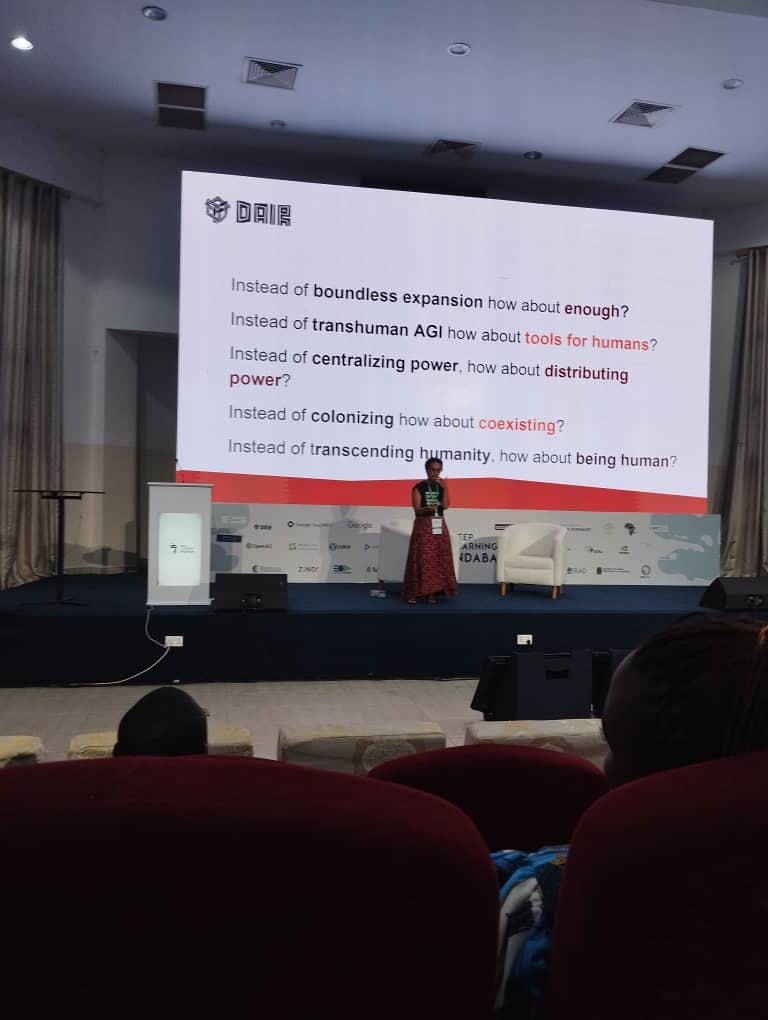
🚀Day 2 - Show your work
The IndabaX presentations and demos were very informative and displayed many creative projects. I also participated in the Instadeep Hackathon, where we worked on improving the cassava genome in Ghana. (It was my first attempt, and I ranked 55th😊)

🚀Day 3 - Aspire to Maguire
I gave a talk on Incorporating ML Models into your Drug Discovery Workflow. I discussed using machine learning, specifically a Bayesian Neural Network from Ersilia, to predict how new drugs might behave in the body (like their absorption, distribution, metabolism, excretion, and toxicity).
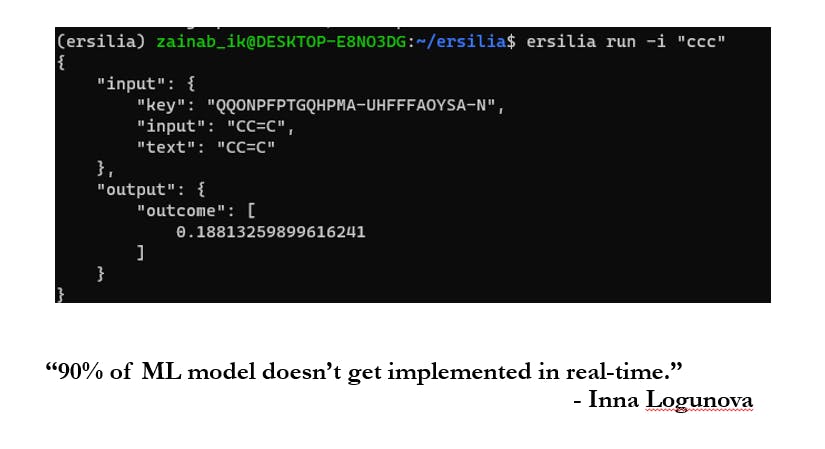
I was fortunate to receive guidance from Paul Kennedy of Zindi and Rishabh Kabra from Google Deepmind during the Ideathon session. Rishabh told me about the Cache Challenge related to computer-based drug design. If you're curious, you can look into it.
I attended a Google networking event where I met Mostafa Dehgani from Google Deepmind and Alex Laterre from Instadeep. Mostafa highlighted the value of internships and suggested applying for many. Alex stressed the significance of domain knowledge in AI and even encouraged me to pursue a PhD in computational biology.
🚀Day 4 - Test of Technical Expertise
My first technical interview went smoothly, thanks to Sophie Shearer and Kyle Taylor. Kyle was incredibly patient and guided me well.
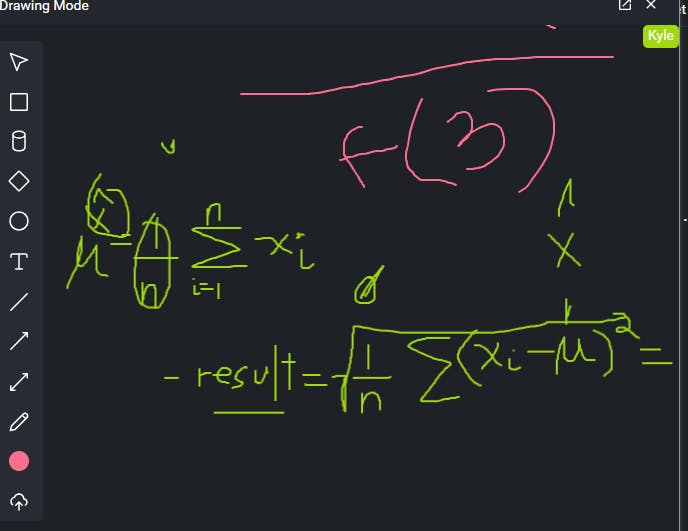
Cape to Carthage follows the story of Instadeep Researchers, who made significant advancements in Multi-Agent Reinforcement Learning (MARL) and showcased their work at NeurIPS'22. It's a tale of dedication, effort, and trust. Catch the premiere on Youtube.
The day ended with the 36 countries at the Indaba displaying their Art and Culture.
🚀Day 5 - Maximizing your Compute power
The Kambule Award was given to Arnu Pretorius for his outstanding contributions to AI. Arnu highlighted the importance of working together as a community.
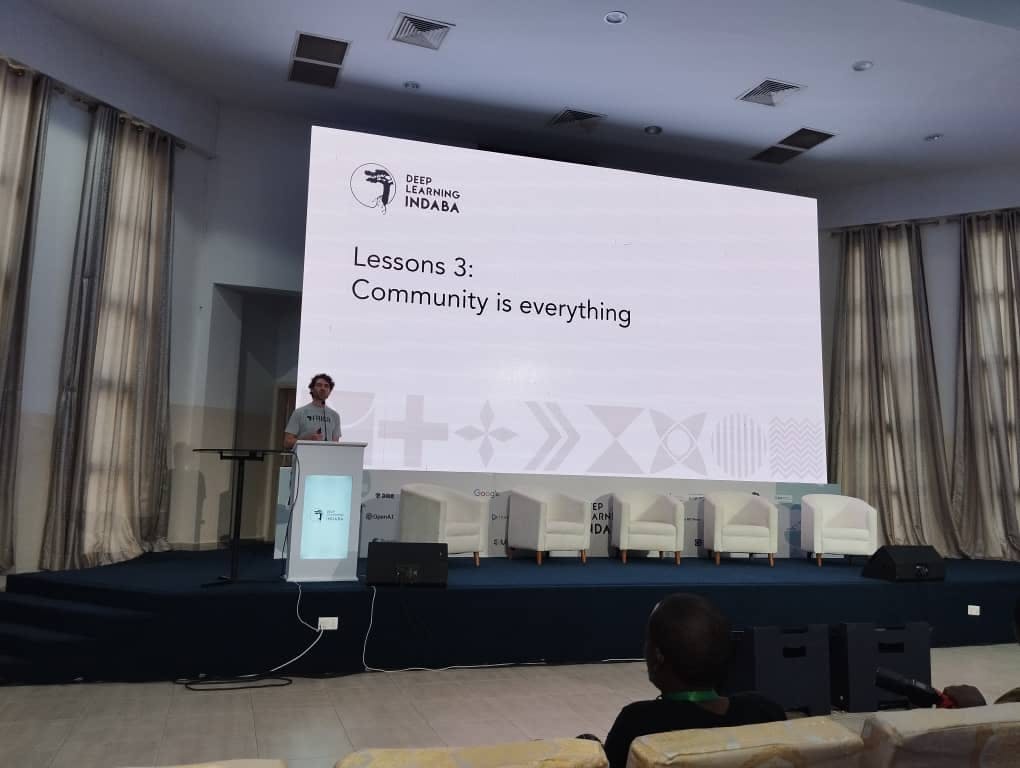
Hugo Larochelle delivered an insightful talk on how neural networks learn and use information and discussed how AI can be applied in various fields.
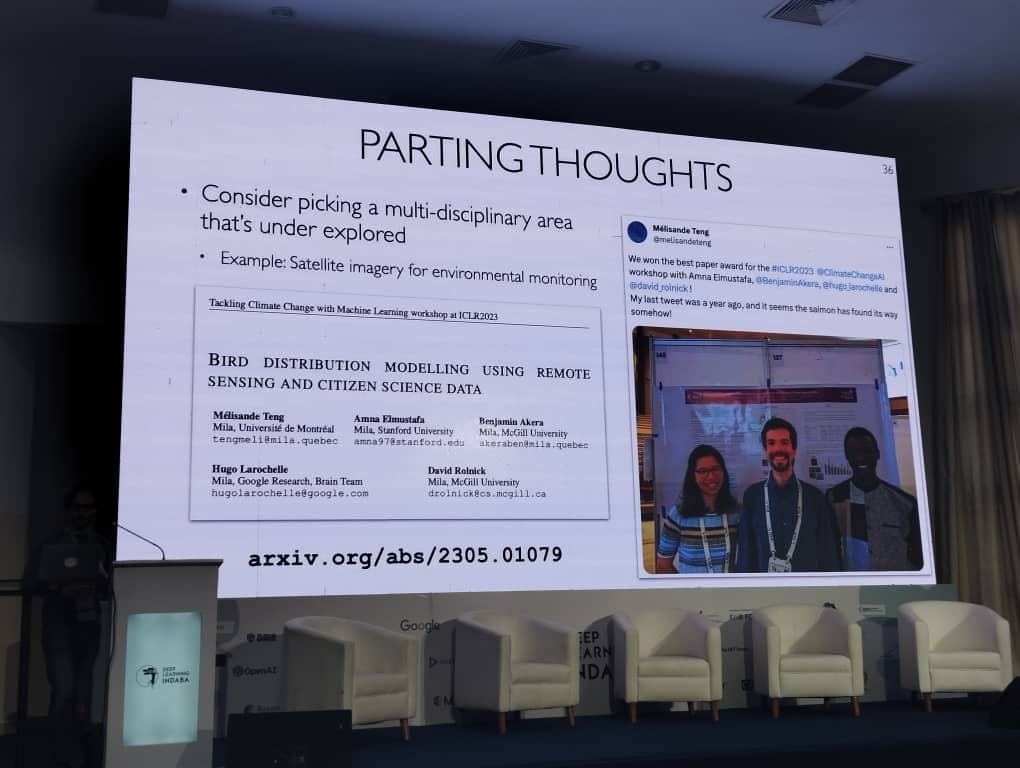
I visited the National Mosque in Accra. It was beautiful.
The Data Science for Health in Africa workshop by Sisonke Biotik encouraged researchers to learn more about their field's tools and challenges and to be more intentional in their science. Dr. Sekou L. Remy shared tips on obtaining computing resources. He advised setting up a professional email, a GitHub account, and a website, emphasizing that teamwork can boost computing capabilities.
The day ended with getting to know Mila and discovering their impressive work.
🚀Day 6 - Parting Shot
Rosanne Liu spoke about the importance of having a genuine career as a researcher in her talk on A Self-Serving Approach To Living A Good Life As A Researcher. She stressed that it's up to us to shape our unique career paths. Thanks to the ML collective members Abraham Owodunni, Mardiyyah Oduwole, and Busayo, I had a chance to meet her. If interested, join the ML Collective, a free non-profit research group.
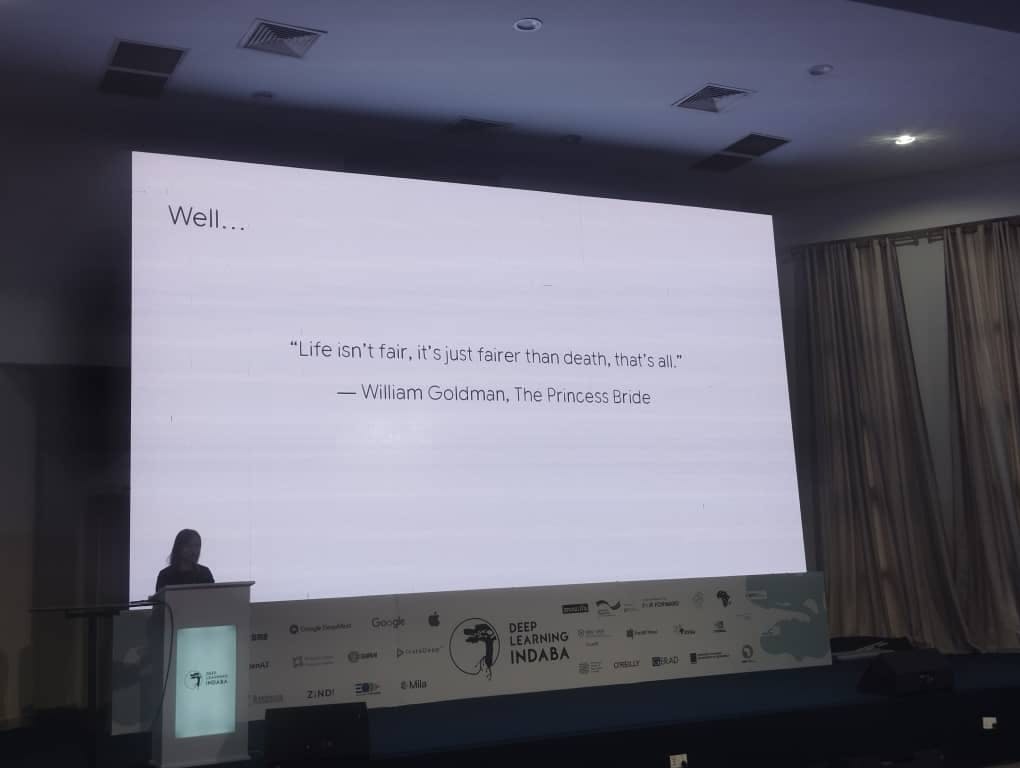
I had a great chat with David Drakard from Instadeep. He shared how they use ML in creating drugs and vaccines, as it was a research interest of mine. It was very informative and exciting.
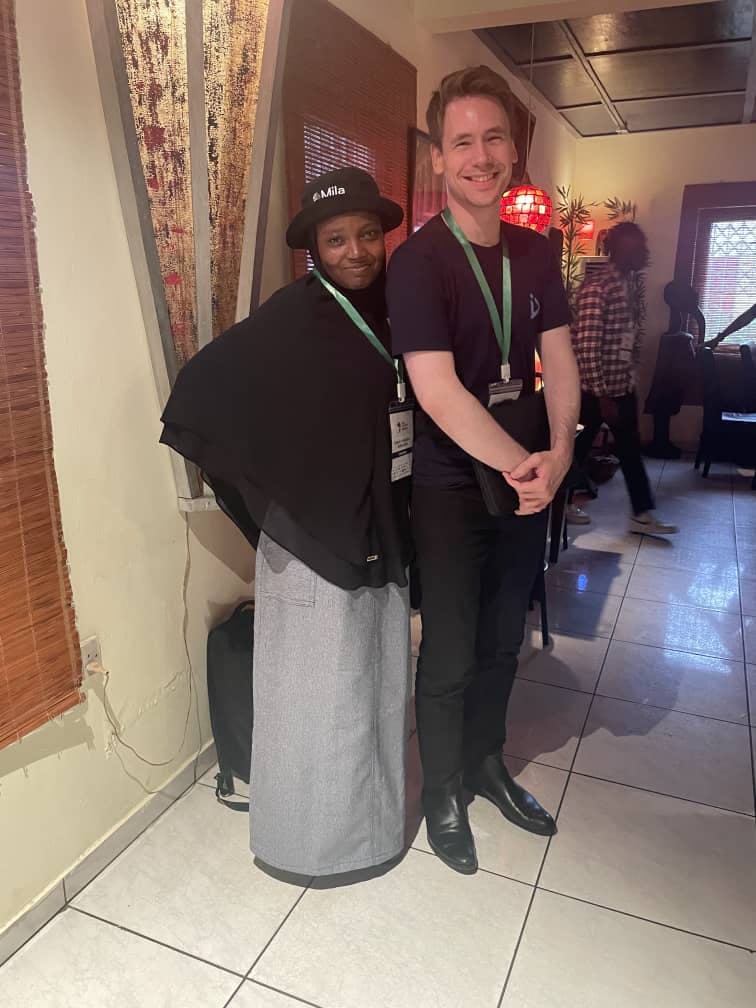
The day concluded with prizes given to those who presented posters as a reward for their hard work. This session was incredibly uplifting and encouraged new researchers to showcase their work.
According to Rosanne, you don't need to do big things to make a difference.
Goodbyes were said at the closing ceremony, and deals were sealed.
🚀Day 7 - Gbagam, Welcome to Nigeria
The Indaba conference was more than just an event for me. I made great friends, got valuable career tips, and built lasting relationships. I'm now more aware of AI's potential and impact on our lives. Cheers to harnessing AI's potential! 🥂
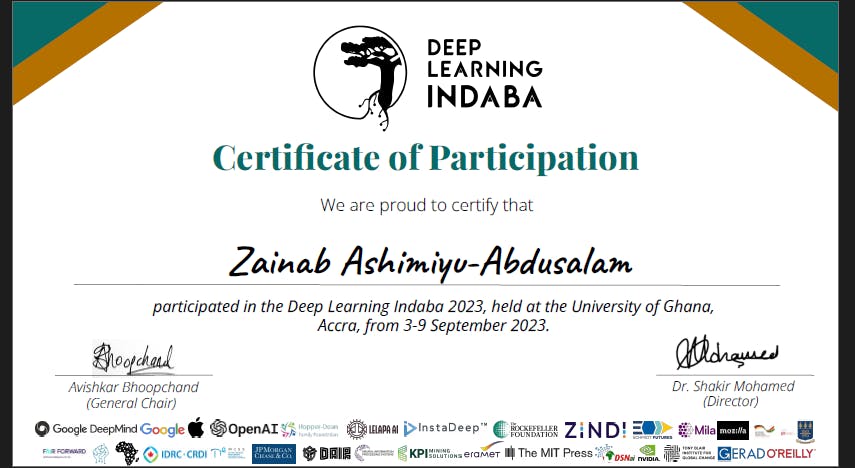
Thanks for reading, and I hope you learned a thing or two.
